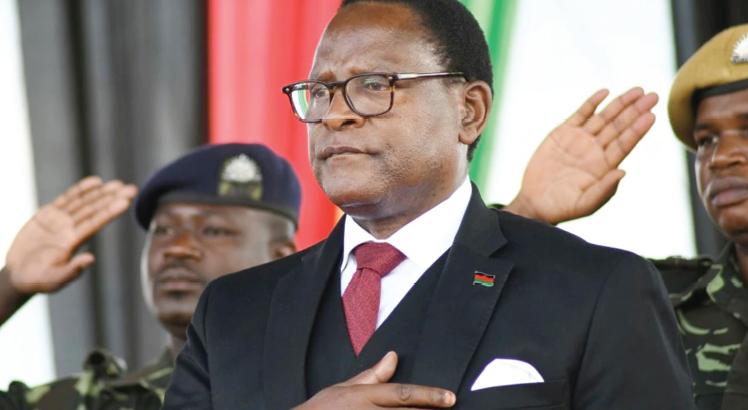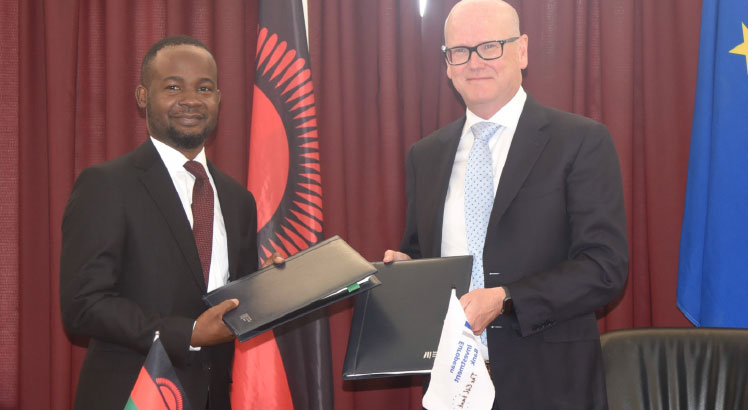Councils have protested a decision by the National Local Government Finance Committee to implement a K4 billion project to rehabilitate public health facilities in selected districts nationwide.
The councils argue that the move is unconstitutional and a threat to tenets of the decentralisation process.
But both Minister of Local Government Blessings Chinsinga and Secretary to the President and Cabinet Colleen Zamba have defended the committee and stated that there is nothing wrong in having the project managed centrally.
The committee has placed newspaper advertisements inviting bids for the rehabilitation of some health facilities in Balaka, Chikwawa, Chitipa, Dowa, Kasungu, Likoma and Mzimba districts with a K4 billion funding from government set aside two years ago.
Zamba: It’s not wrong managing it centrally
But in a letter we have seen addressed to the Ministry of Local Government with copies to the committee and Ministry of Finance and Economic Affairs, the councils, through the Malawi Local Government Association (Malga), argue that constitutionally the committee is just a vehicle for funding to local councils and not an implementer of projects.
Reads the letter in part: “It is our considered view that the decision to centralise the funds in question is unconstitutional as it runs counter to sections 147 (2) 149 and 150 of the Constitution of the Republic of Malawi.
“In addition, we are of the considered view that the decision is contrary to the principles of subsidiary and territorial approach to development implementation.”
Malga further chides the central government for what it calls “insatiable appetite” of managing local development projects on behalf of local government authorities. The letter has demanded a reversal of the decision.
However, the committee’s spokesperson Hamilton Chimala said the decision to fund the projects in this manner was made by Treasury in liaison with Ministry of Health, as such, the two were better-placed to provide clarity.
He said the committee was only facilitating the roll-out of the project which has been dormant for two years.
Secretary to the Treasury MacDonald Mafuta Mwale also provided a response similar to what the committee said.
But Chinsinga backed the arrangement, saying it was due to capacity challenges within councils to implement the project. He said the decision to have it centrally managed was meant to ensure value for money.
He said: “It does not undermine fiscal decentralisation because at the moment, the committee manages finances for local councils. So, structures that will be rehabilitated have been identified by councils themselves.
“The committee is just facilitating procurement processes, but ultimately, we would want the councils to manage the whole process. But while this is the issue, we have capacity issues which we are working on.”
On the other hand, Zamba, speaking through her special assistant Michael Chiphwanya, said the committee was implementing the project because the funds are under its vote.
She said the idea was conceived by the Ministry of Health which, due to capacity issues, transferred the responsibility to the Ministry of Finance and Economic Affairs which later moved the project to the committee.
On whether the arrangement did not compromise fiscal devolution, Zamba said: “Fiscal decentralisation arrangement on the project is something that can be explored to enhance implementation if the current arrangement is not achieving the intended outcomes.”
But Malga executive director Hadrod Mkandawire disagreed with Zamba, saying the idea was conceived by councils.
He said it did not, therefore, make sense to have the whole central government implementing rehabilitation of an under-five clinic at Nthalire in Chitipa.
Said Mkandawire: “Which capacity issues are they talking about when councils manage projects of higher value and volume?
“It is a shame and laughable for the whole central government to be preoccupied with rehabilitation of a maternity wing or under-five clinic in some districts. Where are austerity measures here?”
He has since threatened to take legal action should the central government continue to handle this project.
In an interview yesterday, governance commentator Boniface Chibwana said the whole arrangement is illegal as the committee cannot be a procuring entity on behalf of councils.
“This is another example of lack of willingness from the central government to empower local authorities,” he said.
Under the Decentralisation Policy of 1998, the central government is to devolve powers including financial responsibilities to councils.
The post GOVT, councils fight over K4bn appeared first on The Nation Online.
 Moni Malawi
Moni Malawi 

